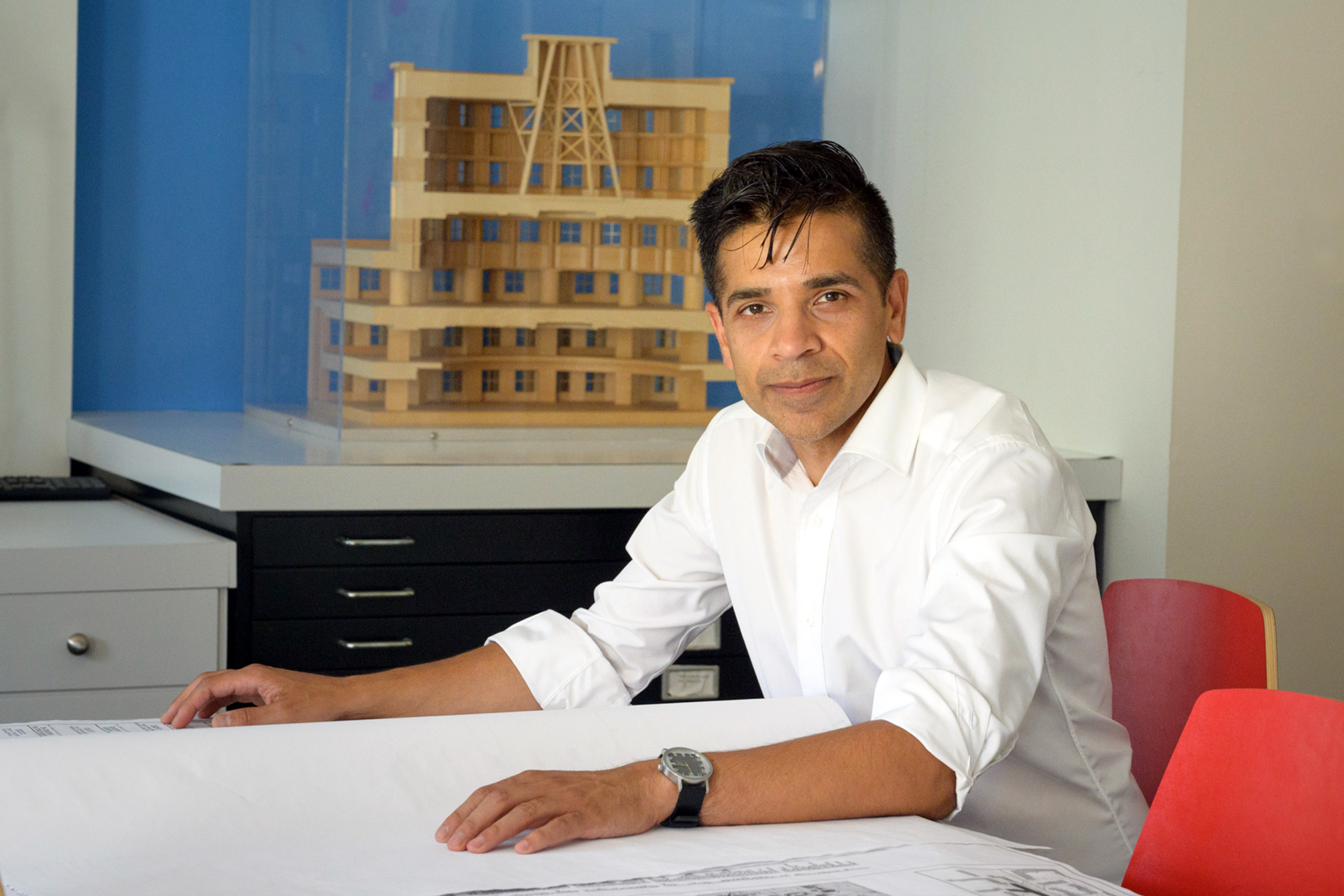Putting $100 Billion in Real Estate Tax Breaks to Better Use
-
-
Slice of MIT
Filed Under
Recommended

Atif Qadir ’04, ’05 thinks real estate developers are leaving a big pile of money on the table. Especially real estate developers interested in social change. “One hundred billion dollars, to be exact,” says Qadir, who double-majored in architecture and urban planning at MIT. “That’s the total amount of tax breaks and incentives that go unclaimed each year by developers working in decarbonization, affordable housing, downtown revitalization, and job creation.”
Two years ago, Qadir decided to do something about it. He launched REDIST—a startup that helps developers identify available local, state, and federal subsidies for development projects. “As an architect educated at MIT, I consider myself a problem solver—a person who knows how to consider realities on the ground and to come up with a solution,” says Qadir, whose brother and sister also obtained degrees from MIT—this generation of the family counts five MIT degrees in all.
A first-generation immigrant to the US, Qadir was born in Bahrain to Indian and Pakistani parents. His route to REDIST started when he chose to study architecture at MIT. “I had many interests in high school,” says Qadir, who attended high school in Long Island, NY. “But when I looked at the field of architecture, I didn’t see many people who looked like me.”
After MIT, he took a design job at a New York architectural firm and completed an MBA at Columbia University in 2014. Qadir signed on with Extell Development, then founded his own development company, Amanat Properties, in 2017. The following year, the mayor of Hoboken, New Jersey, appointed him to the city planning commission. That, says Qadir, was the turning point. “I saw first-hand the strong connection between public policy and the built environment,” he says. “I think I’d aways been aware of it. But it’s like climbing a mountain. You get glimpses of the view, but you don’t see it fully until you’ve reached the summit.”
The amount of data and information available from public agencies is shockingly fragmented. And the smaller developers, the ones who would truly benefit from those subsidies, have to jump through so many bureaucratic hurdles that most of them give up.
Qadir’s 360-degree view inspired him to envision creating a platform he could use to guide developers through the shifting morass of municipal, state, and federal real estate development incentives. “Something where you could type in an address and get a list of all available incentives is where we started,” he says. “It sounds simple. But it isn’t, for many reasons. The regulations are changing constantly. The amount of data and information available from public agencies is shockingly fragmented. And the smaller developers, the ones who would truly benefit from those subsidies, have to jump through so many bureaucratic hurdles that most of them give up.”
In 2019, Qadir and Amanat investor Jonathan Kuo huddled together in Amanat’s Jersey City office to brainstorm; they decided to just build an initial prototype for their target customers rather than a pitch deck for VCs. The pair launched REDIST in January 2020. A few months later, the first wave of the Covid-19 pandemic hit the US. Still, by 2021, REDIST had its first paying customers. REDIST raised $2.5 million in pre-seed and then seed financing. It is preparing for a Series A round of funding this fall. This past March, Qadir joined New York mayor Eric Adams at the New York Stock Exchange to help ring the bell to open the trading day.
During their meetings, Qadir and Kuo quickly realized that users didn’t just want a data stream to wade through or a software. They wanted a partner in the process. This is what REDIST provides. And the company earns revenues based on the success of its projects. The company currently numbers eight employees. That number is destined to grow—along with the number of states where the company operates. Qadir is of course pleased with the growth. But it isn’t just the savings he offers developers or the success of his startup. It’s also the mission that REDIST helps support.
“Decarbonization. Affordable housing. Job creation. Downtown renewal. These are issues that should be close to everyone’s heart, regardless of our political leanings,” says Qadir. “Our ability to deliver in these four areas reflects how we are doing as a country.”
Photo (top): Robin Resch.







